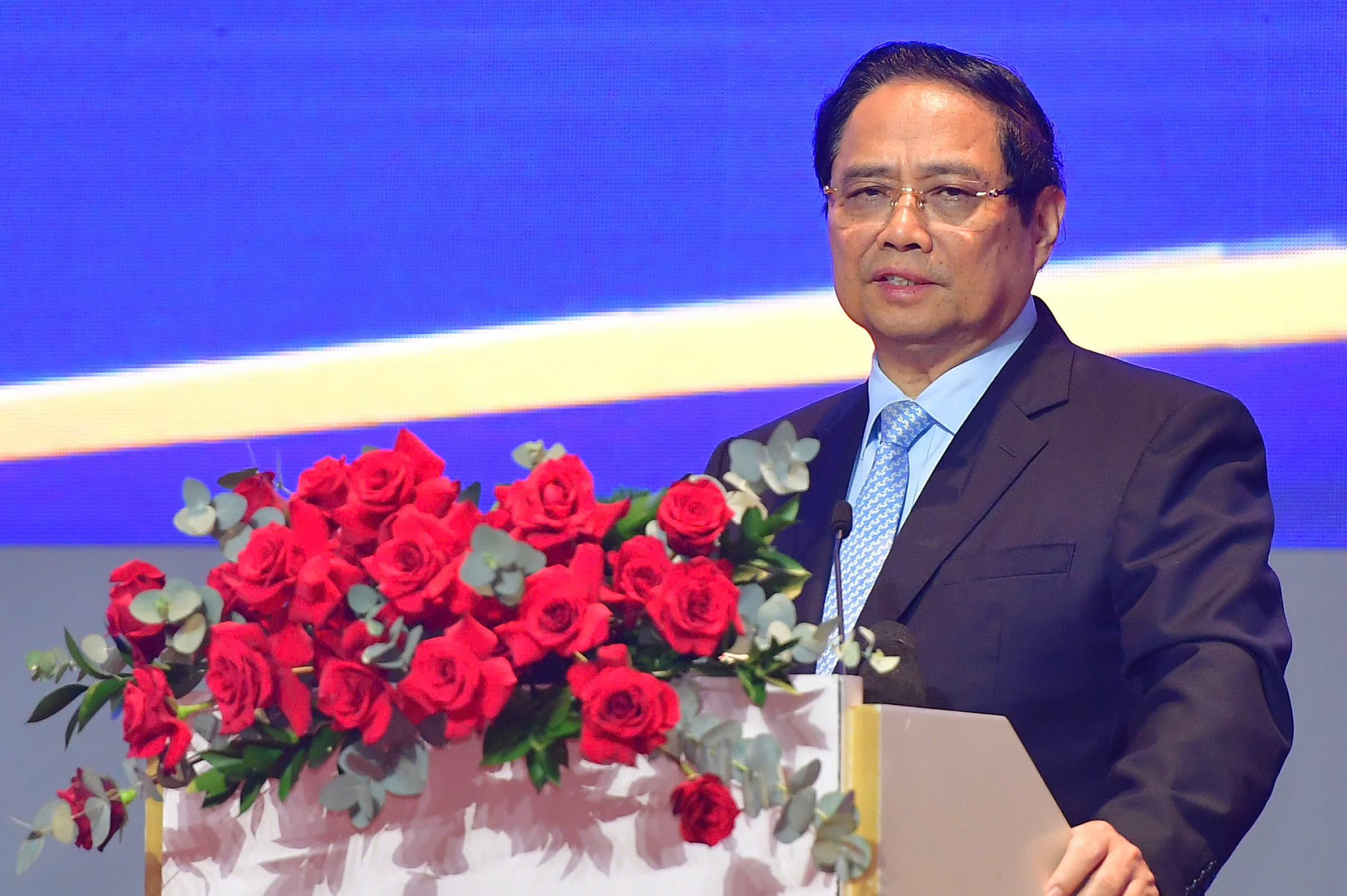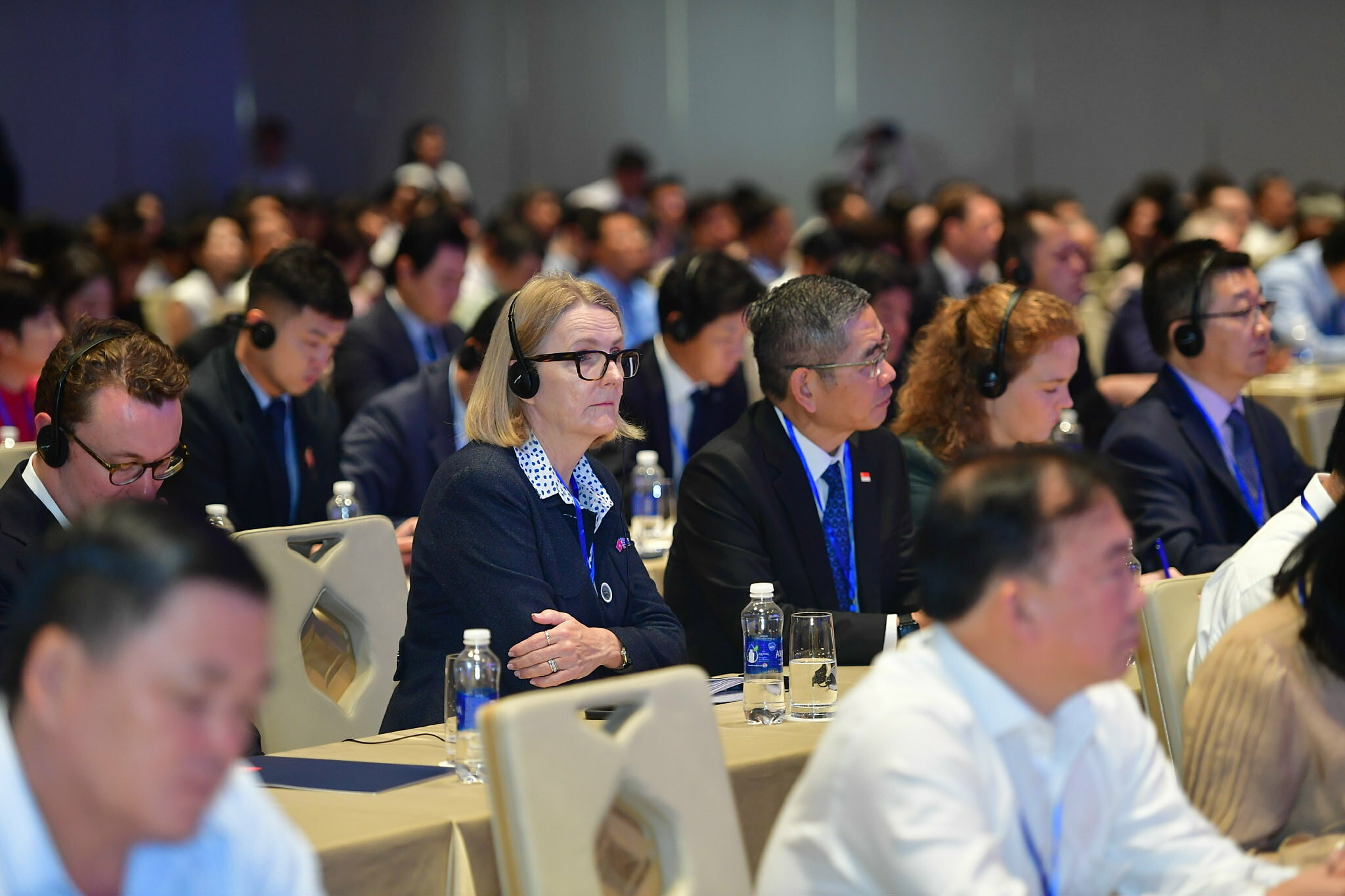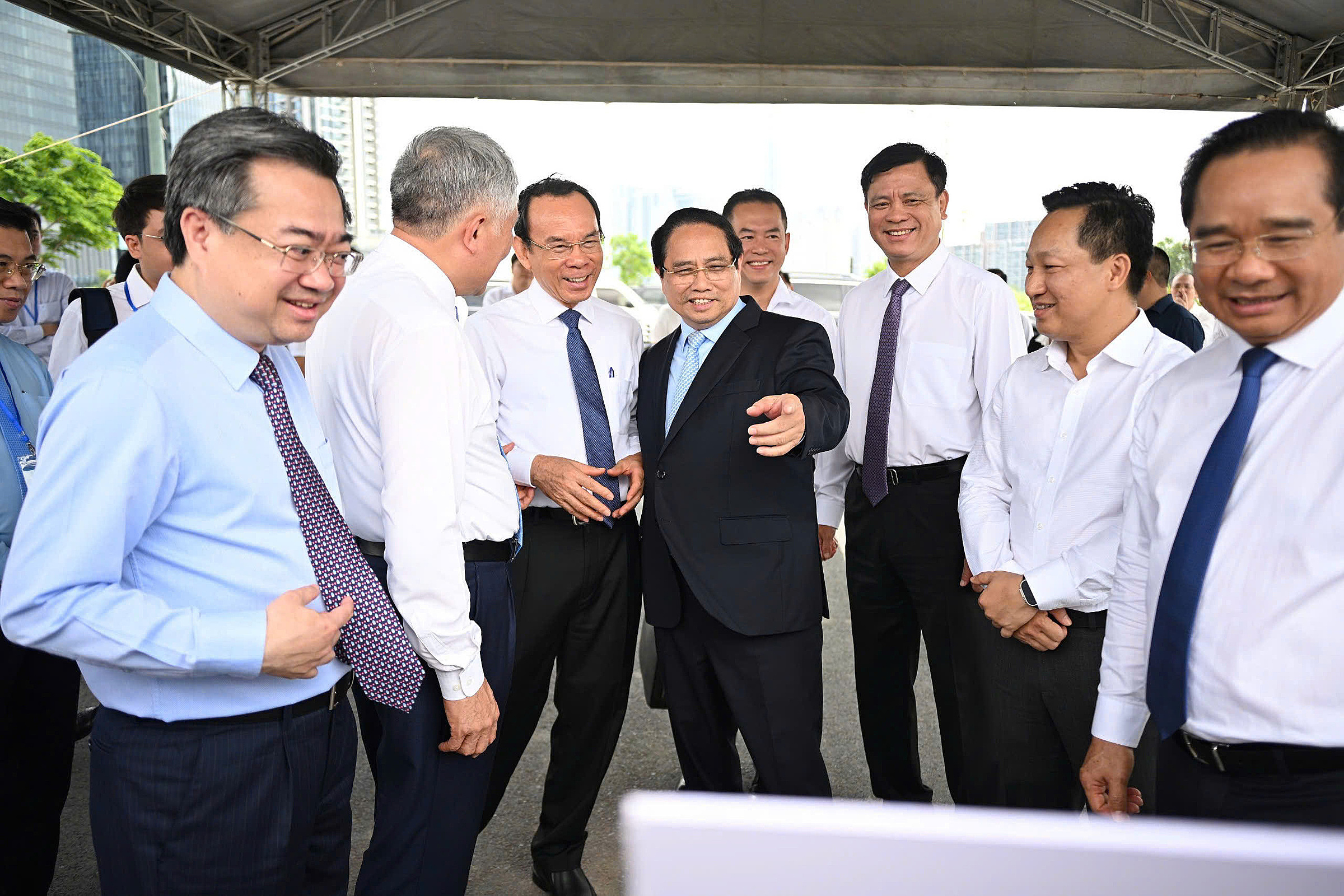"Instead of striving for absolute perfection from the outset, Vietnam has opted for a pragmatic, learn-by-doing approach, allowing for gradual expansion and serving as a testing ground for new financial mechanisms, policies, and models," Prime Minister Pham Minh Chinh stated at the conference on implementing the National Assembly's Resolution on the International Financial Center in Vietnam on the morning of 2/8.
 |
Prime Minister Pham Minh Chinh speaks at the conference on the implementation of the International Financial Center in Vietnam, morning of 2/8. Photo: Thanh Tung |
Prime Minister Pham Minh Chinh speaks at the conference on the implementation of the International Financial Center in Vietnam, morning of 2/8. Photo: Thanh Tung
The resolution to develop international financial centers in Ho Chi Minh City and Da Nang, passed by the National Assembly on 27/6, will take effect on 1/9. The government aims to have the international financial center operational by the end of this year and among the top 75 global financial centers by 2035.
The prime minister emphasized the need for substantial capital to achieve double-digit growth. Given the current capital shortage, establishing and developing an International Financial Center is both necessary and crucial. The Party, State, National Assembly, and Government consider the International Financial Center a strategic breakthrough in institutional and policy reform, with numerous specialized mechanisms and policies being implemented and refined.
According to Prime Minister Pham Minh Chinh, an international financial center is not merely a special urban area or a cluster of financial towers. It's a framework with specialized mechanisms, a relatively defined geographical boundary, specific legal regulations, and professional management. This center will serve as a testing ground for progressive, internationally aligned policies and a space where laws are designed for the future.
 |
The conference on the implementation of the National Assembly's Resolution on the International Financial Center in Vietnam, held in Ho Chi Minh City on the morning of 2/8, attracted numerous domestic and international financial investors. Photo: Thanh Tung |
The conference on the implementation of the National Assembly's Resolution on the International Financial Center in Vietnam, held in Ho Chi Minh City on the morning of 2/8, attracted numerous domestic and international financial investors. Photo: Thanh Tung
Regarding the implementation of the financial center, Prime Minister Pham Minh Chinh stated that Vietnam will not wait for perfect conditions. While the process will present challenges, it also offers opportunities to build capacity, learn valuable lessons, and create new development models.
"Everything is challenging now, but even on a long and difficult road, progress is made by taking the first step. A short and easy road leads nowhere if we don't walk it," the prime minister said, adding that good infrastructure, a solid foundation, and a well-prepared workforce are essential for success.
The prime minister advised against perfectionism but also cautioned against haste, which could lead to critical errors. The key is to find a balance between these two extremes, prioritizing wisdom, efficiency, and decisive action at the right moment.
The operational framework of the International Financial Center in Vietnam must be in place by 1/9. Prime Minister Pham Minh Chinh urged ministries, sectors, and central agencies to promptly draft guidelines for the National Assembly's Resolution. This will provide Ho Chi Minh City and Da Nang with the legal basis to establish administrative and supervisory bodies, ensuring the timely operation of the International Financial Center.
According to the prime minister, Vietnam's goal is not simply to attract investors but to actively lead in new financial models. The center will create space for digital assets, carbon credits, digital banking, and commodity and derivatives exchanges—the pillars of future finance. It will also foster synergy between these new financial models and the real economy, serving production needs.
The prime minister explained that Vietnam's International Financial Center will be more than a place for financial transactions. It will be a hub for capital, talent, technology, culture, regulations, and progressive, innovative thinking. Operating on market principles and international competition, the center will also ensure national governance and financial-monetary sovereignty. It will unlock new opportunities for the prosperity of Vietnam, its partners, businesses, and investors.
At the conference, Nguyen Van Duoc, Chairman of the Ho Chi Minh City People's Committee, announced that the city has allocated 10 hectares of land in the heart of the Thu Thiem New Urban Area for the International Financial Center. While the center is under construction (expected to take two years), building number 8 on Nguyen Hue Street will serve as its temporary headquarters.
 |
Prime Minister Pham Minh Chinh surveys Thu Thiem, the designated location for the International Financial Center in Ho Chi Minh City. Photo: Thanh Tung |
Prime Minister Pham Minh Chinh surveys Thu Thiem, the designated location for the International Financial Center in Ho Chi Minh City. Photo: Thanh Tung
Regarding human resources, the city has established a leadership framework and organizational structure with four departments. It is currently recruiting experienced professionals with expertise in finance and securities. The city is collaborating with the Vietnamese-German University to train personnel, who will then be sent to international financial centers for further training before returning to operate the center.
Ho Chi Minh City is also preparing bilateral and multilateral international cooperation agreements with international financial centers globally, establishing mutually beneficial long-term relationships.
In Da Nang, City Party Secretary Nguyen Van Quang reported that the city has proactively planned and allocated strategic land plots. These locations are conveniently situated within the developing urban area, within a 5 km radius of the international airport, and have the necessary legal framework to attract investment.
From 2025 to 2027, Da Nang will focus on attracting investment in infrastructure and developing the financial center's ecosystem on cleared, planned land plots near the coast, totaling 6.17 hectares and meeting international standards. Da Nang has also proactively developed policies to cultivate high-quality human resources to support the International Financial Center.
Le Tuyet












